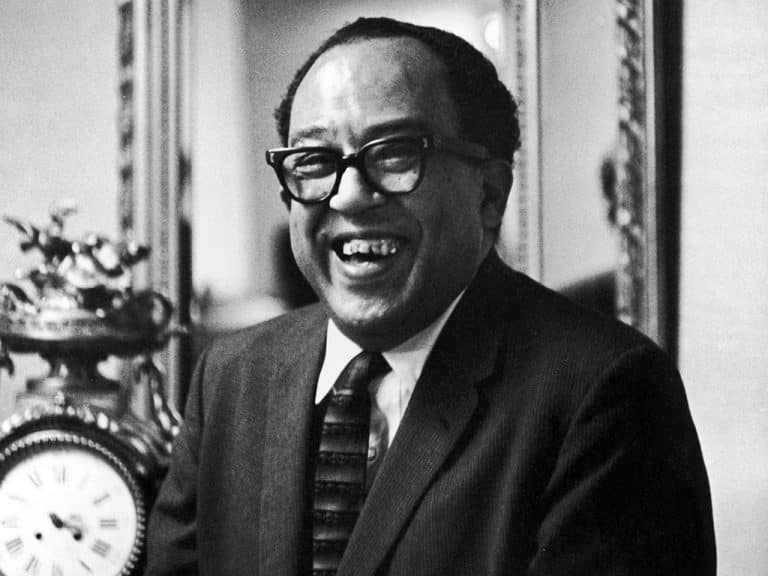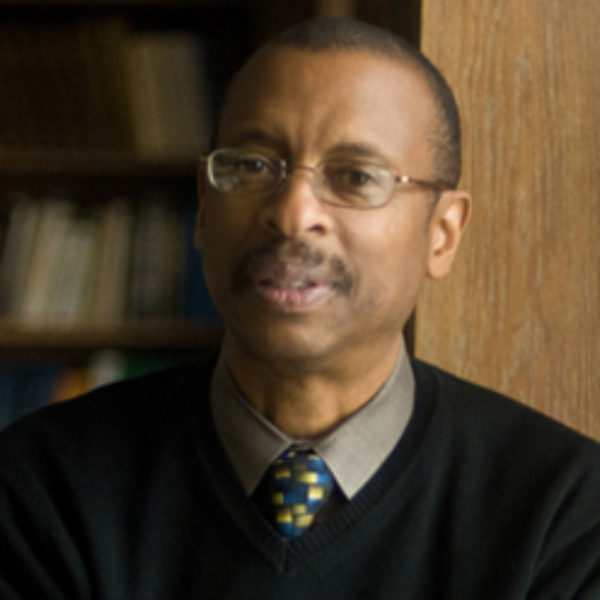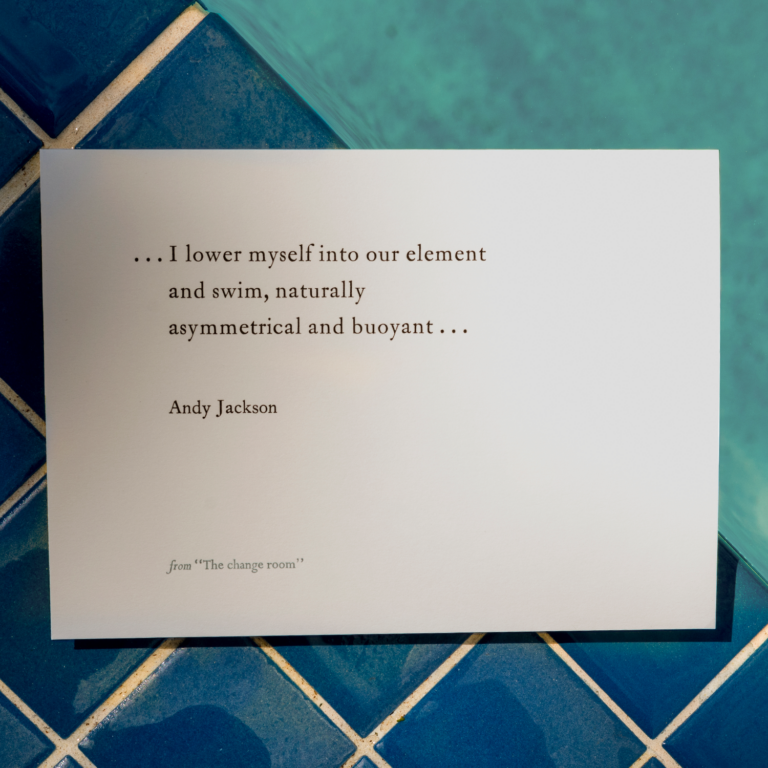
Image by Hulton Archive/Getty Images, © All Rights Reserved.
The Buddha Smile of Langston Hughes
Sometimes while walking alongside a river or lake I feel a little Langston in me. Suddenly I have a desire to throw all my possessions into the water and listen to my heart. I felt this way after reading The Big Sea in college. I wanted to stand on the S.S. Malone with Hughes heading towards Africa. There was something romantic and spiritual about what Langston Hughes did on the deck of that boat. I like his courage and his decision-making. I interpreted the throwing away of his books as the search for another way to live; I saw it as being the journey of the poet.
During his career, Hughes would embrace every genre and his work would define as well as interpret the black experience. It is through the eyes of Hughes that we can understand the significance of the Great Migration of black people from the south to the north. Hughes was a witness to the movement of black bodies from fields into factories — his people’s transformation. He saw dreams fighting for sunlight in the shadows of tall buildings. He wrote of Harlem as if it were Mecca, and his work provided hope through its reliance on the survival rhythms of blues and jazz.
It has always been easy to remember Hughes. His name is linked to the Harlem Renaissance and the black development of modern literature. However, I like to remember Hughes for his radicalism and celebration of blackness. Poems like “Dream Variations” are simply delicious. They leave a sweetness in one’s mouth. Everyone has a favorite Hughes poem. At the top of the list would probably be “Mother to Son,” “The Weary Blues,” and “The Negro Speaks of Rivers.” Mine is one of his long poems, “Let America Be America Again.” This poem is critical of our country but it strongly reaffirms a belief in its principles and heritage. It’s also a visionary work, the kind I would like to see more of today.
There is much for a writer like myself to learn from Langston. His productivity — and the fact that he wrote for a living — is an inspiration. In many photographs, Hughes is laughing or smiling like the Buddha. I have often wondered what he was thinking. He maintained extensive correspondence with other writers like Arna Bontemps. I remember an interview with Amiri Baraka where he spoke of receiving a postcard from Hughes in the fifties expressing his joy and surprise at finding out he was black.
Hughes was a lover of art and of his people. His heart embraced more than a city, neighborhood, or community. His words tear through flesh to embrace spirit, helping to preserve our cultural memory. He produced classical work rooted in the folkways of black people. If Hughes was a dream keeper it was because of his ability to love the word, the language and the people who everyday gave birth to its brightness.
Hughes was a man of the world. Among what critics describe as his “miscellaneous” poems are works that examine nature. But it is here that we find the private Langston; the man who loved the sea. These poems are as important to the scope of his work as the poetry he wrote about race and social issues. In his anthology The Garden Thrives: Twentieth Century African American Poetry, Clarence Major selected two rarely touted Hughes poems, “Moonlight Night: Carmel” and “Seascape.” As we approach his 100th birthday in 2002, I hope that future anthologies of African American literature will continue to provide wider representation of Hughes’ work.
For me, looking at Langston, with his Buddha smile and easy laugh, makes me think about what it means to possess a poet’s heart. I too have known rivers. I like to think of Langston as being not just the keeper of our dreams, but builder of the ferry that we ourselves can guide to take us there.
This essay was originally published in Black Issues Book Review in 2001.

